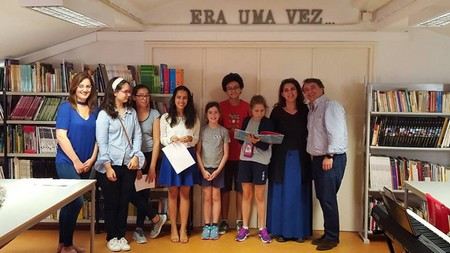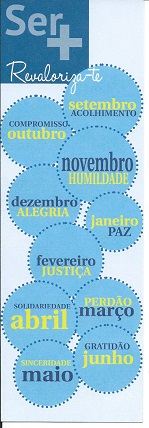 Pascal Rey via Compfight
Pascal Rey via Compfight
#EdublogsClub Prompt 36
In my old time, there were a few main differences between how we lived as students and how our youth cope with it today; perhaps the most subtle difference concerns the inner feeling of the rhythm of time: it seemed to be flowing away at a slower pace.
The curriculum was much lighter than it is now, at least in the present education system of my country; still, it was already overloaded by this enormous weight of technical knowledge and very little space was left to learn how to reflect and raise deep questions.
I was in a boarding school during my 7th and 8th grades: after the lights were down and only a very sweet blue light remained twinkling in the dark, I knew that was the time for reflection: it was the indispensable “me time” that we weren’t given during the noisy, busy, cheerful and collective work day. Then I would sneak silently out of my dormitory and would walk all along the school corridors; I would revisit the classrooms, only guided by the street lights that came through the large windows in the corridors. I needed that nocturne walk to really decentre myself and process all the multiple and colourful stimuli I had received during daytime.
I remember to feel astonished by realizing the fact that so many different people had dwelt in these same spaces during the day; the silence and obscurity of the late hour brought back to me the echo of sounds, movements and events, but in such a way that they seemed changed, ceasing to be familiar and turning out to be strange; only then they would unveil their hidden face and exhale a mixture of strangeness and enchantment: “So much life has been here, all this has happened, and this fact is in itself a deeper mystery than everything we learn in class”.
I used to think that we were dealing just with things most of the time, that there was no wisdom in what we learned; we were expected to build a certain amount of objective knowledge, but nowhere the meaning of life was addressed as a human and essential question, except in Moral lessons, which were given by an awesome woman and Dominican sister who revolutionized the system.
School subjects were clever, interesting and utile, but we could grasp the sense that nothing crucial was at stake. Finally I found my way when I was older, in faculty, studying Philosophy. As Michael Wesch puts it so clearly: “The crisis of significance: the fact that many students are now struggling to find meaning and significance in their education.”
In the end, what really counts and gives sense to the school, is also and perhaps first of all, learning how to raise the vital questions we can’t solve as a mathematical riddle, the questions passionately human and genuinely urgent that engage the totality or our being; the questions with which we find ourselves involved and that need our own personal commitment in order to unveil their impressive and effective power to transform both our world, the reality around us and our inner selves.
The wisdom to take the risk of a life quest that accepts the challenge of the ultimate questions, that’s what I would like that schools in the future could nurture and encourage.






